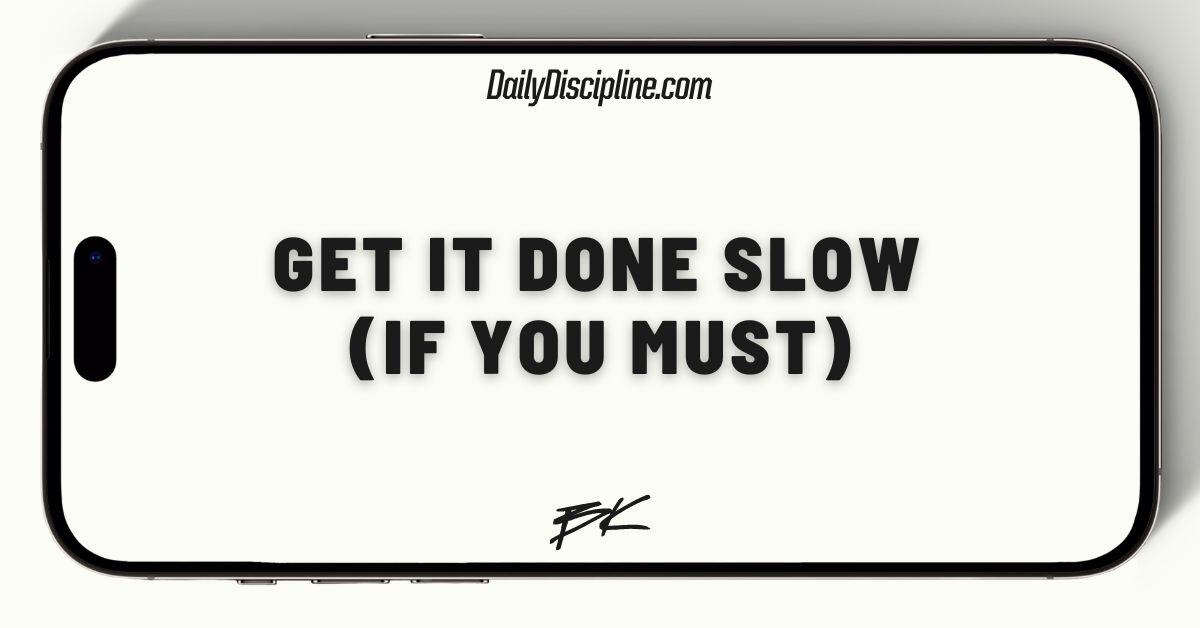Slow progress is better than no progress
Hey : Friday’s Daily Discipline message didn’t get sent on-time because our...
Hey : Friday’s Daily Discipline message didn’t get sent on-time because our...

Sometimes, it doesn't matter when you get it done. It only matters that you get it done. It doesn't...
Share your thoughts